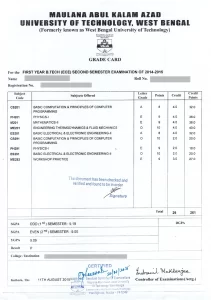The process of applying to universities abroad can be both thrilling and intimidating. Studying by applying to overseas universities exposes students to new cultures, cutting-edge educational programs, and engaging educational opportunities. However, the application procedure necessitates thorough preparation and close attention to detail. You will be well-prepared to start this transformative journey by following this guide, which will assist you in navigating the procedures required to apply for study abroad in foreign universities.
Table of Contents
How to Apply to Foreign Universities?
Early application is crucial when applying to international universities. It is essential to do research as the application deadline may differ based on the country and the institution. Here’s a step-by-step manual to assist you with the procedure:
1. Research and Select Universities: Start by looking into international colleges that provide the courses you’re interested in. Consider the location, tuition costs, course design, and university reputation. Make a shortlist of colleges based on your preferences and academic aspirations.
2. Understand the Application Process: Every university has a different application procedure, and some of them include sending in electronic transcripts, creating personal statements, and supplying recommendation letters. Ensure you know the particular prerequisites for every university on your list.
3. Prepare for Standardized Tests: Standardized test scores from exams like the SAT, GRE, GMAT, or IELTS/TOEFL are required by many international universities as proof of English proficiency. Enroll in these exams as soon as possible to give yourself plenty of time to study.
4. Gather Required Documents: Letters of recommendation, official transcripts, electronic transcripts, academic transcripts, and a current passport are frequently required when applying to international universities. Ensure that all of these documents are available, and confirm that they are accurate.
5. Submit Applications: Now that you have assembled all the required paperwork, it’s time to submit your applications. Remember the application deadlines and ensure all necessary materials are sent in on time.
6. Apply for Scholarships and Financial Aid: Since studying abroad can be costly for Indian students, looking into financial assistance and scholarship programs is critical. International students can apply for scholarships offered by numerous foreign universities.
7. Prepare for Interviews: Interviews may be mandatory for admission to specific universities. Prepare a brief statement outlining your educational background, reasons for doing study abroad applications, and desired career path.
8. Await Admission Decisions: The waiting period starts once your applications are submitted. A university usually takes several weeks to months to evaluate applications and make announcements. Make the most of this time to prepare for the next steps, including making student housing and visa applications.
Benefits of Studying at a Foreign University
Studying abroad offers numerous benefits that extend beyond academics. Here are some key advantages:
1. Cultural Exposure: Studying abroad allows you to experience a different culture, learn a new language, and broaden your horizons. Your horizons will expand, and this cultural exposure will accelerate your personal development.
2. Quality Education: International universities are renowned for their excellent academic standards, particularly those in the US, UK, and Australia. You can take advantage of opportunities for cutting-edge research and top-notch education by studying abroad.
3. Career Opportunities: Gaining a degree from an international university can significantly increase your employability. Employers frequently value the knowledge and abilities acquired through studying overseas, including adaptability, problem-solving, and intercultural communication.
4. Networking: Having classes at a foreign university allows you to connect with academics, industry professionals, and peers worldwide. These relationships may prove beneficial for joint ventures and future employment prospects.
How to Apply to Foreign Universities After 12th
The process may vary slightly for students who wish to know how to study abroad immediately after completing their 12th grade. Here’s how to apply for foreign universities after the 12th:
1. Choose Your Course and University: Shortlist the colleges that offer the course you want to take. Consider elements such as course offerings, campus amenities, and university rankings.
2. Check Eligibility Requirements: Eligibility requirements for undergraduate programs vary by university. Ensure you fulfill the prerequisites academically, including specific grades on your 12th-grade exams and English language proficiency.
3. Prepare and Submit Documents: Like in the general application process, you must submit official transcripts, academic transcripts, letters of recommendation, and possibly an essay or personal statement. Some universities may also require electronic transcripts.
4. Standardized Tests: Depending on the university and the nation, you might be required to take standardized tests like the SAT or ACT. You should also take English proficiency exams like the TOEFL or IELTS.
5. Apply for Scholarships: Scholarships are available from numerous foreign universities to international students, even those who apply after 12th grade. For assistance paying for your education, look into and apply for scholarships.
6. Submit Applications: Ensure that all required documents are submitted before the application deadlines. Double-check that your application is complete and accurate.
7. Plan for Visa Application: Once you receive an admission offer, you must apply for a student visa. This process can take time, so start early and gather all necessary documents.
Requirements for International Students
International students must fulfill specific requirements to be considered for admission when applying to foreign universities. These prerequisites might differ based on the university and the nation, but typically consist of the following:
1. Official Transcripts: You might also be required to submit official transcripts, certified copies of your academic records, and academic transcripts. Usually, the university receives these transcripts straight from your school or college.
2. Statement of Purpose (SOP): An essay outlining your academic and professional background, reasons for choosing the course, and why you’re applying to the specific institution
3. English Proficiency: Proof of English proficiency is often required for non-native English speakers. This can be demonstrated through standardized tests like the IELTS or TOEFL.
4. Letters of Recommendation: Letters of recommendation from instructors, professors, or employers are typically required by universities. These letters should emphasize your aptitude for academic work, moral qualities, and likelihood of succeeding at a foreign university.
5. Proof of Funds: Financial statements or bank letters showing you have sufficient funds to cover tuition and living expenses
6. Visa Documents: Offer letter from the university, financial statements, accommodation details, and health insurance certificate for visa application.
Summing up
Planning, preparation, and attention to detail are essential when students aim for foreign universities. You can complete the application process if you follow the instructions. Studying abroad offers priceless experiences and chances for both professional and personal development, regardless of whether you are applying to international universities after your 12th grade or are pursuing higher education later in life. To increase your chances of success, make sure you thoroughly consider your options, fulfill all application requirements, and submit your application to study abroad applications on time.



